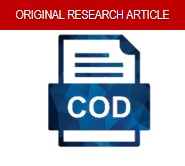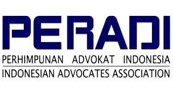Exploring Factors and Impacts of Contract Breaches in Medical Therapeutic Agreements
DOI:
https://doi.org/10.46924/jihk.v5i1.172Keywords:
Contract Breaches, Therapeutic Agreements, Psychological ImpactsAbstract
This research addresses how social, economic, and educational factors contribute to contract breaches and explores the psychological impacts on patients and doctor-patient relationships, offering effective management strategies. Utilizing an empirical legal research approach, data will be gathered through observation and in-depth interviews. This study reveals how social, economic, and educational factors impact contract breaches at Mitra Masyarakat Timika Papua Hospital. Social conditions, culture, and environment shape patient-therapeutic interactions. Economic constraints and lack of insurance impede treatment payment, while limited education affects medical understanding and rights comprehension. Strategies like financial flexibility, assistance, and improved cost information manage risks. Breaches cause psychological impact and strained doctor-patient ties. Effective strategies encompass communication, support, re-evaluation, dispute resolution, education, and improved doctor communication. Holistic, empathetic approaches maintain care quality and trust
Downloads
References
Aldiano, Rico. “Perjanjian Terapeutik Sebagai Wujud Perlindungan Hukum Bagi Pasien Dalam Hal Malpraktik.” Brawijaya Law Student Journal, 2017, 1–12. http://hukum.studentjournal.ub.ac.id/index.php/hukum/article/view/2354.
Gani, Evy Savitri. “Tinjauan Yuridis Kedudukan Hukum Para Pihak Dalam Perjanjian Terapeutik.” Tahkim: Jurnal Hukum Dan Syariah 14, no. 2 (2018): 157–74. http://dx.doi.org/10.33477/thk.v14i2.617.
Grady, Christine. “Enduring and Emerging Challenges of Informed Consent.” New England Journal of Medicine 26, no. 9 (2015): 855–62. https://doi.org/10.1056/NEJMra1411250.
Iedema, Rick, Trish Greenhalgh, Joan Russell, John Alexander, Khudeja Amer-Sharif, Paul Gardner, Mark Juniper, et al. “Spoken Communication and Patient Safety: A New Direction for Healthcare Communication Policy, Research, Education and Practice?” BMJ Open Quality 8, no. 3 (2019): 1–4. https://doi.org/10.1136%2Fbmjoq-2019-000742.
James A. Wall, Jr., John B. Stark, and Rhetta L. Standifer. “Mediation: A Current Review and Theory Development.” Journal of Conflict Resolution 45, no. 3 (2001): 370–391. https://doi.org/10.1177/0022002701045003006.
Lintang, Kastania. “Tinjauan Yuridis Terhadap Pelaksanaan Informed Consent Dalam Perjanjian Terapeutik.” Jurnal Hukum Lex Generalis 2, no. 4 (2021): 296–308. https://doi.org/10.56370/jhlg.v2i4.73.
Morelli, Sylvia A., Ihno A. Lee, Molly E. Arnn, and Jamil Zaki. “Emotional and Instrumental Support Provision Interact to Predict Well-Being.” Emotion 15, no. 4 (2015): 484–493. https://psycnet.apa.org/doi/10.1037/emo0000084.
Paterick, Timothy E., Nachiket Patel, A. Jamil Tajik, and Krishnaswamy Chandrasekaran. “Improving Health Outcomes through Patient Education and Partnerships with Patients.” Baylor University Medical Center Proceedings 30, no. 1 (2017): 112–113. https://doi.org/10.1080/08998280.2017.11929552.
Pratama, Chandra Akbar Eka, and Ngadino Ngadino. “Kedudukan Informed Consent Sebagai Perlindungan Hukum Hubungan Dokter Dan Pasien Dalam Kasus Malpraktek.” Notarius 15, no. 1 (2022): 241–52. https://doi.org/10.14710/nts.v15i1.46038.
Priyadi, Aris. “Kontrak Terapeutik/ Perjanjian Antara Dokter Dengan Pasien.” Jurnal Media Komunikasi Pendidikan Pancasila Dan Kewarganegaraan 2, no. 1 (2020): 183–92. https://doi.org/10.23887/jmpppkn.v2i1.134.
Ramadhan, Muhammad Syahri. “Implementasi Asas Hukum Perjanjian Terapeutik Dan Informed Consent.” Istinbath: Jurnal Hukum 18, no. 1 (2021): 32–49. https://doi.org/10.32332/istinbath.v18i1.2850.
Ranjan, Piyush, Archana Kumari, and Avinash Chakrawarty. “How Can Doctors Improve Their Communication Skills?” Journal of Clinical and Diagnostic Research 9, no. 3 (2015): 1–4. https://doi.org/10.7860/JCDR/2015/12072.5712.
Septarina, Muthia, and Salamiah Salamiah. “Perlindungan Hukum Bagi Pasien Dalam Perjanjian Terapeutik Ditinjau Dari Hukum Kesehatan.” Al-Adl: Jurnal Hukum 7, no. 14 (2015): 34–49. http://dx.doi.org/10.31602/al-adl.v7i14.227.
Shahriah, Sunjida, Sunjida Islam, and Khalid Arafath. “Therapeutic Contract and Ethical Practice in Counselling and Psychotherapy.” Bangladesh Journal of Bioethics 10, no. 3 (2019): 11–15. http://dx.doi.org/10.3329/bioethics.v10i3.50405.
Sinaga, Niru Anita. “Perjanjian Terapeutik Kaitannya Dengan Informed Consent Dalam Praktik Kedokteran Di Indonesia.” Jurnal Ilmiah Hukum Dirgantara 12, no. 1 (2021): 1–10. https://doi.org/10.35968/jihd.v12i1.876.
Syahputra, Rinaldi, Sarina Uly, Armen Sosialisa Sihotang, and Yetti Yetti. “Tinjauan Yuridis Sahnya Perjanjian Terapeutik Dan Perlindungan Hukum Bagi Pasien.” Humantech: Jurnal Ilmiah Multidisiplin Indonesia 2, no. 1 (2022): 54–64. https://doi.org/10.32670/ht.v2iSpesial Issues 1.1119.
Teturan, Inosentius. “Perjanjian Terapeutik Terhadap Pasien Sebelum Dilakukan Pembedahan: Studi Kasus RSUD Biak Numfor.” Jurnal Ilmu Hukum Kyadiren 3, no. 1 (2021): 34–44. https://doi.org/10.46924/jihk.v3i1.148.
Thesis
Shovia, Azka. “Wanprestasi Dalam Perjanjian Terapeutik Di Rumah Sakit Umum Daerah (RSUD) Dr. Moewardi Surakarta.” Universitas Gadjah Mada, 2012. https://etd.repository.ugm.ac.id/penelitian/detail/52881.
Valendri, Ingrit. “Penyelesaian Wanprestasi Dalam Perjanjian Rawat Inap Di Rumah Sakit Umum Daerah Tebing Tinggi Kabupaten Empat Lawang.” Universitas Bengkulu, 2014. https://repository.unib.ac.id/8856/.
Published
Issue
Section
License
Authors who publish with this journal agree to the following terms:
- Copyright on any article is retained by the author(s).
- The author grants the journal, the right of first publication with the work simultaneously licensed under a Creative Commons Attribution License that allows others to share the work with an acknowledgment of the work’s authorship and initial publication in this journal.
- Authors are able to enter into separate, additional contractual arrangements for the non-exclusive distribution of the journal’s published version of the work (e.g., post it to an institutional repository or publish it in a book), with an acknowledgment of its initial publication in this journal.
- Authors are permitted and encouraged to post their work online (e.g., in institutional repositories or on their website) prior to and during the submission process, as it can lead to productive exchanges, as well as earlier and greater citation of published work.
- The article and any associated published material is distributed under the Creative Commons Attribution 4.0 International License



 Sinta ID:
Sinta ID: 


















